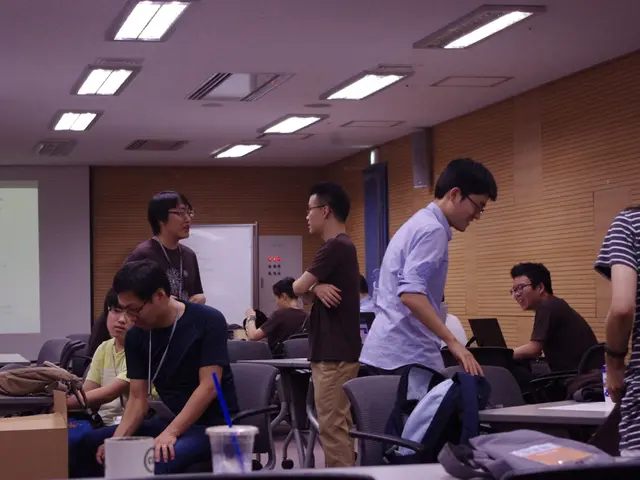Expanded budget sets aside almost twice as much money for research and innovation endeavors in the long-term plan.
In a bid to enhance the European Union's (EU) competitiveness in critical strategic sectors and digital technologies, the EU has proposed a significant increase in funding for research and innovation programs. The new budget, spanning from 2028 to 2034, stands at €2 trillion, an increase from the €1.21 trillion in the previous period.
The European Commission has announced that Horizon Europe, a research and innovation program, will receive an allocation of €175.3 billion, marking a substantial rise from the €93.5 billion in the previous period. This program will now be part of the European Competitiveness Fund (ECF), which has a total budget of €410 billion.
The ECF will have four vertically integrated sectoral windows: clean transition and decarbonisation, resilience, defense industry and space, digital leadership, and health and bio-economy. Horizon Europe will focus on financing projects related to green and digital transitions, as well as research leading to scientific breakthroughs.
In addition, the Commission President, Ursula von der Leyen, has pledged to invest €20 billion in AI gigafactories for collaborative AI model development. Meanwhile, France's President Emmanuel Macron has committed to invest €109 billion in AI projects in France in the coming years.
The tech lobby group Digital Europe estimates that the European Union needs an **additional investment between €157 billion and €227 billion per year on average** to close its digital investment gap and catch up with other regions in digital technologies. This significant investment gap underscores the scale of resources required to strengthen Europe’s digital competitiveness and strategic autonomy.
The new ECF is pooling resources from eleven programs, aiming to improve the EU's competitiveness in technologies and strategic sectors critical to the EU. The US government has also shown its commitment, allocating €92 billion for cutting-edge AI and energy initiatives.
However, the proposed EU budget needs to be discussed by the member states and requires the consent of the European Parliament. The Commission's document states that until now, the variety of EU programs supporting innovation and research has been seen as "complex and difficult to navigate" for the targeted beneficiaries.
Digital technologies are crucial for Europe to cut emissions, protect critical infrastructure, and boost productivity, according to Digital Europe. The new budget and funding initiatives are therefore expected to play a vital role in shaping Europe's digital future and ensuring its competitiveness in the global market.
- Recognizing the need for a significant investment in digital technologies to close the digital investment gap and enhance Europe's digital competitiveness, the European Commission plans to allot €20 billion for AI gigafactories, aiming for collaborative AI model development.
- With education-and-self-development at the forefront, Horizon Europe, part of the European Competitiveness Fund (ECF), will focus on financing projects related to green and digital transitions, as well as research for scientific breakthroughs, contributing to the EU's progress in technology and strategic sectors.




